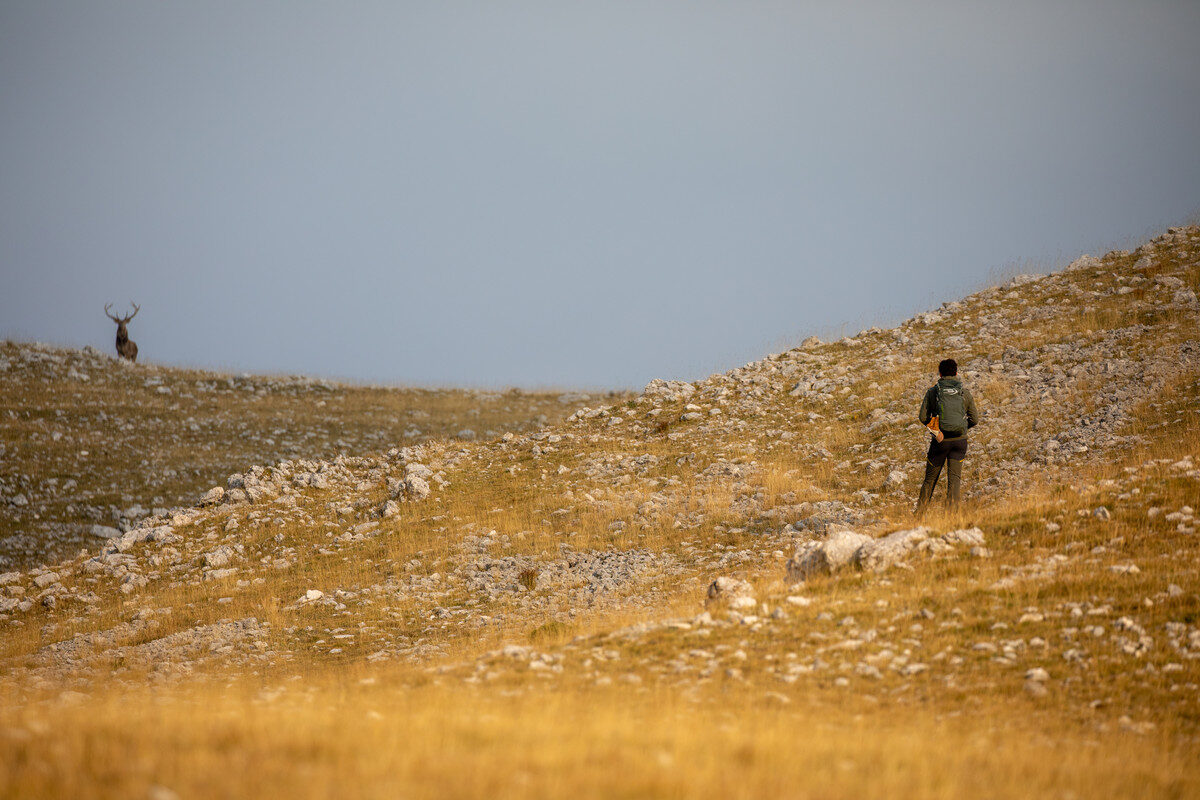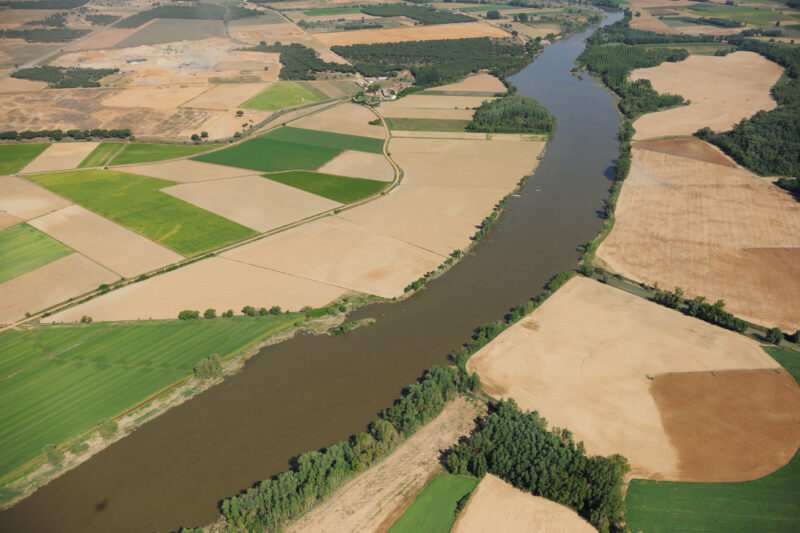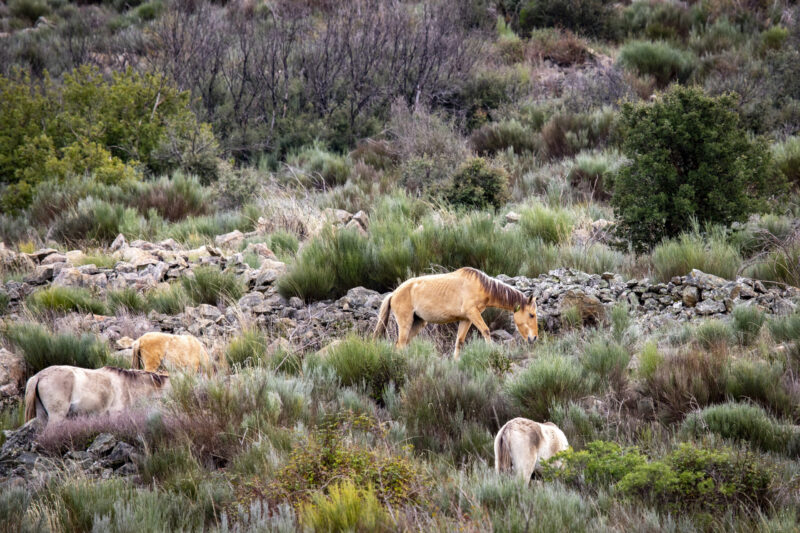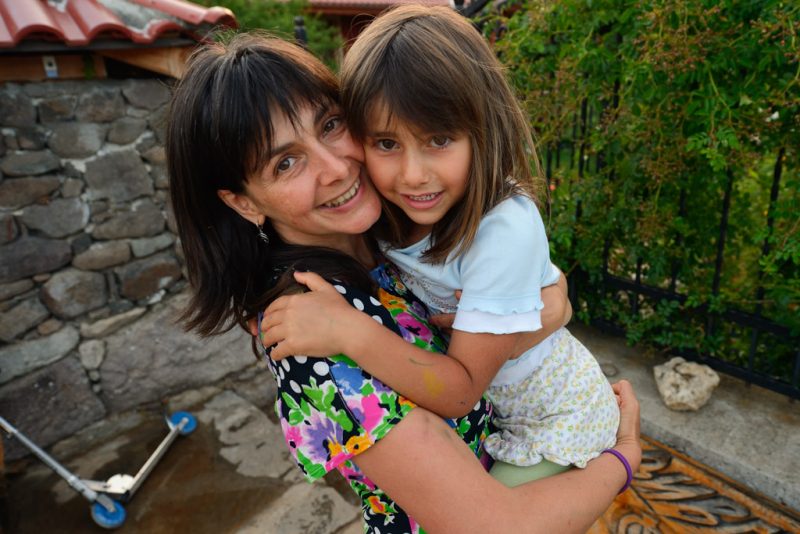Economic benefits

A business case for the wild
Rewilding creates new opportunities for economic growth, employment, and income generation. By integrating rewilding objectives into business strategies, Rewilding Europe empowers enterprises and communities to cultivate nature-based economies. The restoration of ecosystems not only revitalizes rural areas but also creates avenues for new livelihoods, countering economic stagnation, rural depopulation, and land abandonment.
Leveraging the expertise of our dedicated team in business, finance, and rewilding, we pioneer the integration of enterprise and conservation efforts, catalyzing landscape-scale nature recovery initiatives across Europe and demonstrating the value rewilding brings to landowners, investors, and society at large.

Investment in rewilding
Rewilding at scale is one of the best ways of addressing climate change, enhancing biodiversity, and enriching communities and businesses in a sustainable way. This is why we are committed to making rewilding commercially viable and investible.
The newly setup company Wilderway aims to scale up European rewilding by connecting land owners and impact investors looking to invest in rigorously verified, long-term, high-impact rewilding initiatives.
We also provide financial loans to businesses that catalyse, support and achieve positive environmental and socio-economic outcomes that support rewilding through Rewilding Europe Capital (REC).
“In Europe conservation and entrepreneurship often appear to inhabit mutually exclusive worlds.
Rewilding can bring these worlds together.”

Johannes Schreuder
Head of Nature for People
Wider benefits

Revitalising local communities
In several of our landscapes we have started to see the revitalisation of local communities. Young families and individuals have returned to their villages, breathing new life into places that have long suffered from rural depopulation. Rewilding enterprises, such as wildlife guiding and accommodation, draw visitors and rewilding centres are becoming hubs for local stakeholders and partners to meet.
Rewilding fosters social cohesion and enhance sense of identity and pride related to nature and wildlife among local communities in our rewilding landscapes, while improving people’s health, wellbeing and preserving cultural heritage.

Climate positive
Rewilding holds the key to climate change resilience for both nature and communities. By restoring natural ecosystems, processes such as regeneration of forests and natural grazing help people and businesses by minimising the risk and impact of global warming, such as floods, droughts, and outbreaks of disease and catastrophic wildfire. They also foster economic development, health and societal wellbeing.
Despite its immense potential, rewilding as a solution remains largely untapped. That’s why Rewilding Europe is dedicated to accelerating these efforts, showcasing the benefits through practical action, encouraging and supporting other climate positive rewilding initiatives, and by exploring options to increase investment in nature recovery.
Threats of rural land abandonment
Rural economies, societies and landscapes across much of Europe are changing as more people move to urban areas. Reasons for this include better opportunities in employment, education, healthcare and social life. The migration leads to a decline in the provision of rural goods and services, less public and private investment, and fewer job opportunities.
The changes in rural areas pose various challenges with widespread effects, resulting in three main consequences:

Environmental impact
- Open and diverse habitat biodiversity is being lost because of bush and forest encroachment, resulting in a rapid decline of species, biodiversity and natural ecosystems.
- Populations of many species (mammals, birds, reptiles, insects, plants) dependent on open and half-open (mosaic) landscapes are declining and loosing terrain.

Socio-economic impact
- Experienced labour forces and associated enterprises are diminishing.
- Employment prospects are worsening.
- Rural areas are increasingly dependent on subsidy support.

Cultural impact
- Rural populations are becoming aged as younger community members move to urban areas.
- Cultural heritage and traditional skills of rural areas are being eroded.
- Families are fragmenting also resulting in associated land marginalisation.
Opportunities of rural land abandonment
Although land abandonment can and does have a number of negative consequences including increased risk of forest fires and acute socio-economic decline, it also presents a number of compelling new opportunities. With its enterprise component, Rewilding Europe is creatively leveraging these opportunities to build new nature-driven economies that can serve to reverse these damaging trends.

Environmental impact
- Less human influence means natural processes have a chance to help improve the natural environment and restore nature.
- Wildlife species can come back and experience less conflict with humans, and food chains can be restored.
- Dynamic, mosaic landscapes can develop driven by large herbivores and large carnivores, supporting species of a wide range of open/semi-open habitats.

Socio-economic impact
- New businesses can be developed based on wilder landscapes and wildlife comeback, offering new and different products.
- Provision of new job and income opportunities.
- Social coherence and local society can be enhanced if new local businesses build networks and generate multiplier effects.
- Reduces dependency on subsidies.

Cultural impact
- Younger people and families returning to the countryside looking for new opportunities, bringing new life into rural communities.
- Local/regional branding of areas and products providing new identities and local pride that are nature/wildlife related.
- Cultural heritage and traditional skills reinvigorated and in a different setting.
Our main achievements
Rewilding Europe Capital
Since 2013, through REC a total of 24 enterprises have now received financial support, with disbursed loans totalling over 2.3 million euros in six countries. These enterprises range from wildlife viewing hides in Italy, Croatia and Portugal, wildlife breeding centres in the Netherlands to sustainable hunting ventures in Croatia, peat restoration and the rewilding of forests in Finland.
A best practice manual
To outline the benefits of wildlife watching hides, and to provide guidance for businesses and initiatives that want to develop and operate them, Rewilding Europe has developed a Code of Conduct for the development and operations of wildlife hides. This comprehensive manual is intended to complement a well-illustrated practical guide to wildlife watching hides, published by Rewilding Europe in 2014, which provides a range of information on types of hide and their planning and construction.
Enterprise support
Rewilding Europe’s enterprise team has provided technical support to 152 enterprises, mostly in the rewilding landscapes where we work. Out of these, 60 enterprises received specific training, while 24 received a loan through Rewilding Europe Capital. The number of employments created through these enterprises is 47 people.
